Warming up for the FEI European Championship
horse riding | Dec 2024
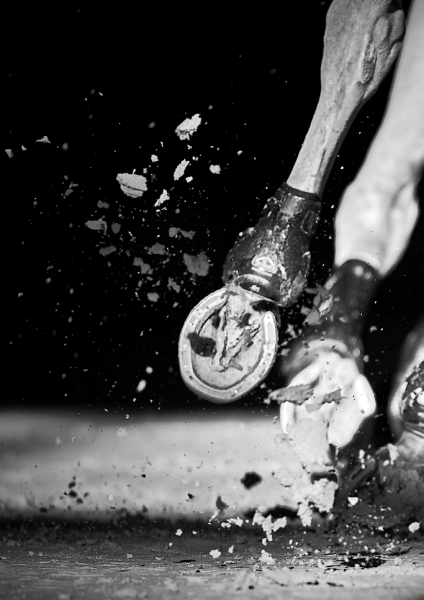
Casas Novas will host next year, from July 16, the 38th edition of the FEI Jumping European Championship. It is still too early to know how many and who the participants will be, but no one doubts that the show will be at the height of a competition whose record withstands the most demanding quality controls.
The doubts of the start
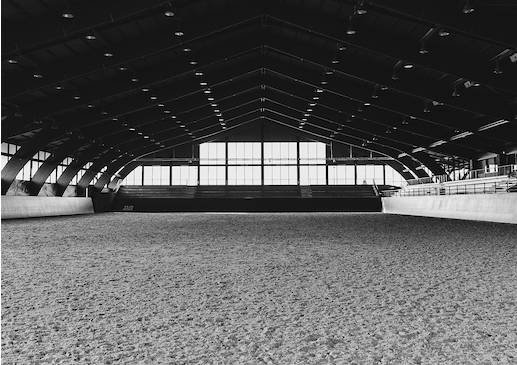
Equestrian competition reached the Olympic Games in 1912, but the first FEI World Championship would have to wait until 1953, when the Spaniard Francisco Goyoaga achieved a victory. Four years later, in 1957, Rotterdam hosted the 1st edition of a FEI European Championship, although with conditions that are far from those of today. The competition was only individual, there was no team class and, after many controversies, it was decided that the final would be with a change of horse, which greatly limited participation. Only 8 riders from 5 countries accepted the challenge and it was the German Hans Günter Winkler, by then already double World Champion and Olympic Champion, who would take the title with Sonnenglanz, as he did not want to subject the complicated Halla, his best specimen, to the exchange of horses. A year later, the FEI European Championship were moved to Aachen, but with one major change: there would be no change of horse in the final, which, added to the imposing scenery, caused the number of participants to rise to 24 riders from 13 countries. Winkler did then take Halla and won another medal, the bronze, behind his compatriot Fritz Thiedemann, and the Italian Piero D’Inzeo, who began that year an impressive streak that would lead him to add 4 consecutive medals, one of them gold with Uruguay in Paris 59, the year in which it returned to the change of horse in the final.
Broome-Mr Softee: the pioneering pair
Until 1969, the FEI European Championship was held annually except for the Olympic years, but its conditions were constantly changing with comings and goings about the format. The 60s started with British dominance as David Broome won in 1961 and the following year David Barker won. Curiously, the former ended up riding the latter's horse, Mr Softee, and not only that, but he also won the 1967 and 1969 FEI European Championships with him, both becoming the first to achieve 3 individual golds. The meeting of one and the other was possible thanks to the weak health of the animal, which made it remain inactive for long periods and caused its change of ownership until it ended up in Broome's stables. According to him, "he was very noble, a great jumper, but he had a very poor physique and delicate health, his hocks were bad but he learned to live with all of it. At that time, the obstacles were enormous, very different from those of now, and the courage of the horse was more important than any other quality. Softee believed he was the King... and it was."1969 was the first year in which the FEI European Championship was definitively reserved for European riders. As incredible as it may seem now, the FEI European Championship had been open until that moment to competitors from other continents and, in fact, in 1966 the first 3 positions were occupied by the Brazilian Nelson Pessoa, the American Frank Chapot and the Argentine Hugo Miguel Arrambide, which caused great controversy and the subsequent change of the regulations.
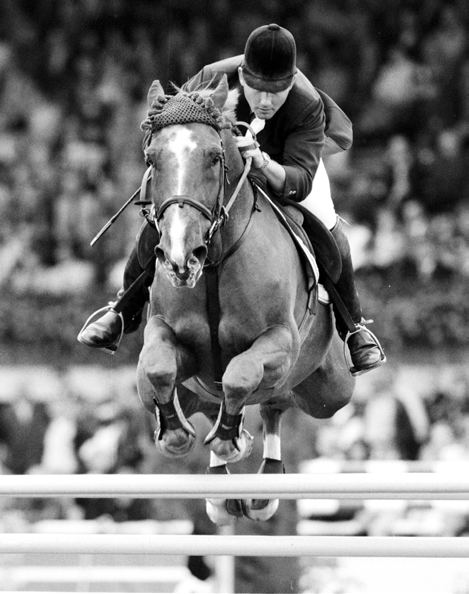
The Schockemöhle
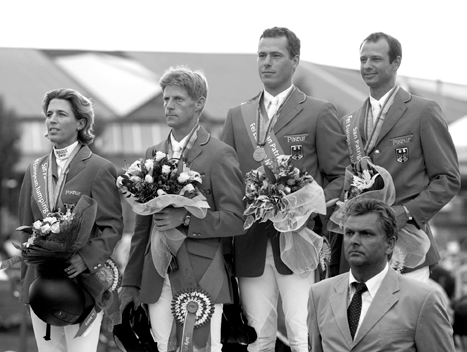
To achieve his last individual gold, that year 1969, Broome had to overcome the stiff resistance of Alwin Schockemöhle, one of the greatest riders in history, who, by then, had already been Olympic team champion in Rome, but who was resistant to individual gold medals. In fact, the German climbed on his fourth European podium in Hickstead (2 silvers and 2 bronzes) and even climbed to a fifth before achieving in 1975 the long-awaited and deserved victory that had eluded him for so many years and that finally ended with some hurtful comments in the German press about his alleged inability to win. That was the first year in which men and women participated together, as the riders had had their own FEI European Championship until 1973, and it was also the 1st edition with team classification, won by Germany. Schockemöhle thus added another medal with Warwick Rex, the horse that would end up giving him an individual Olympic gold in Montreal a year later and which, as he said, "jumped so high that, sometimes, I had trouble holding myself in the air".
1979 was another key year in the history of the FEI Championship since, after multiple ups and downs, modifications and controversies, the new regulations of the competition came into force that have been maintained to this day and that included 3 days with a Table C competition, a FEI Nations CupTM and a two round competition.
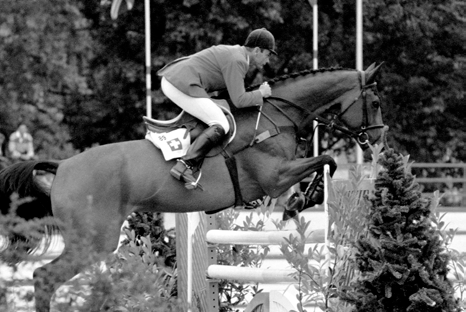
The new format was so well received that there were 47 participants, a record number until then, representing 15 countries. The Germans dominated the individual competition and Alwin Schockemöhle's name was once again in the spotlight, this time indirectly, as his former pupil and protégé, Gerd Wiltfang, took gold, and his younger brother Paul took silver with Deister. Precisely this pair would be the great protagonist of the following years, as they took gold in 1981, 83 and 85, thus becoming the only one to have won the gold medal. Deister's story deserves to be known because, as a colt, it was discarded for a selection auction for "ugly", ended up sold for 15,000 marks for dressage, had to be recycled to jumping for its indomitable character and ended up in Paul Schockemöhle's stable after the fatal traffic accident of his previous rider, Hartwig Steenken.
The woman
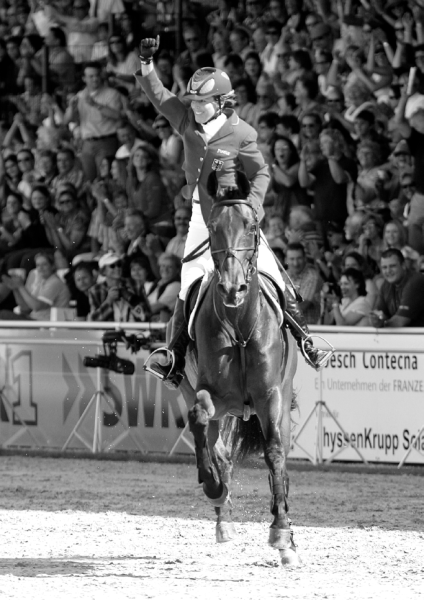
Deister's last medal came in Dinard in 1985, the year in which Heidi Robbiani made history by being the first female rider to achieve an individual medal (silver) at a FEI European Championship. The Swiss had already won team gold 2 years earlier with the explosive Jessica V, although it was Britain's Debbie Johnsey and Caroline Bradley who opened the list of women's medalist (team) in 1977 and 79. Fourteen years after Robbiani escorted Schockemöhle, Hickstead hosted the most women's Championships in history, as the French Alexandra Ledermann was the first rider to take an individual gold with Rochet M and Lesley McNaught took bronze, thus forming a podium that, for the first and, so far, only time, had a majority of women. As if anything was missing, Germany won gold with a team that included Meredith Michaels, later European Individual Champion in 2007 with Shutterfly. Hers was the 4th consecutive individual title for the Germans and the 5th in 6 years, two of them were achieved by Meredith's brother-in-law, Ludger Beerbaum, winner in 1997 with Ratina Z and in 2001 with Gladdys S.
Constant growth
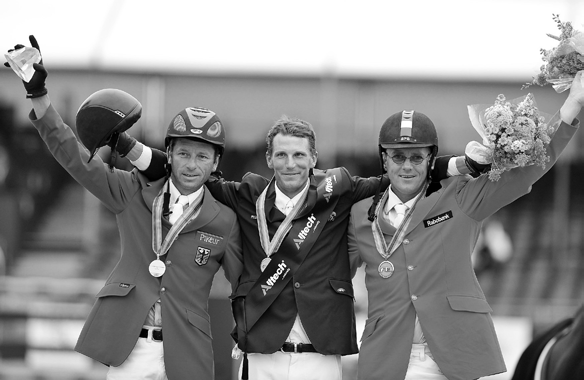
The numbers do not deceive and Germany largely dominates the medal table of the competition with 71 medals, 29 of which are gold and 18 individuals. Great Britain is 2nd in the ranking with 49 and Switzerland 3rd with 44. The number of participants has not stopped growing in recent editions to reach 85 competitors from 24 countries in 2023, 77 more than in the first edition. This is not, however, the record, since in 2015 Aachen welcomed 94 competitors and 22 teams! Figures that summarize the success of a completely established competition that has visited the most important arenas on the continent. Two of them are Spanish: Las Mestas, in Gijón, where the edition won in 1993 by the Swiss Willy Melliger was held, and the Club de Campo Villa de Madrid, in which the Swede Rolf-Goran Bengtsson won the title in 2001. Next year, Casas Novas will join that list to welcome the best again and to bring to that dazzling record new names to add to those of the great little Jappeloup, the beloved and dazzling Milton, the powerful Quito of Baussy and Montender, the classy Ratina Z, the courageous Coster, the sensitive Shutterfly, the consistent All Inn, the rocky Clooney, the exuberant Chakaria, the diva Dynamix de Belheme and so many other horses that have given luster to a list of winners in which not all of them are here, but those who are, are meant to be. A Coruña is already preparing for a new FEI European Championship in which new stories will be written that will deserve to be told, known... and lived. We are waiting for you!
